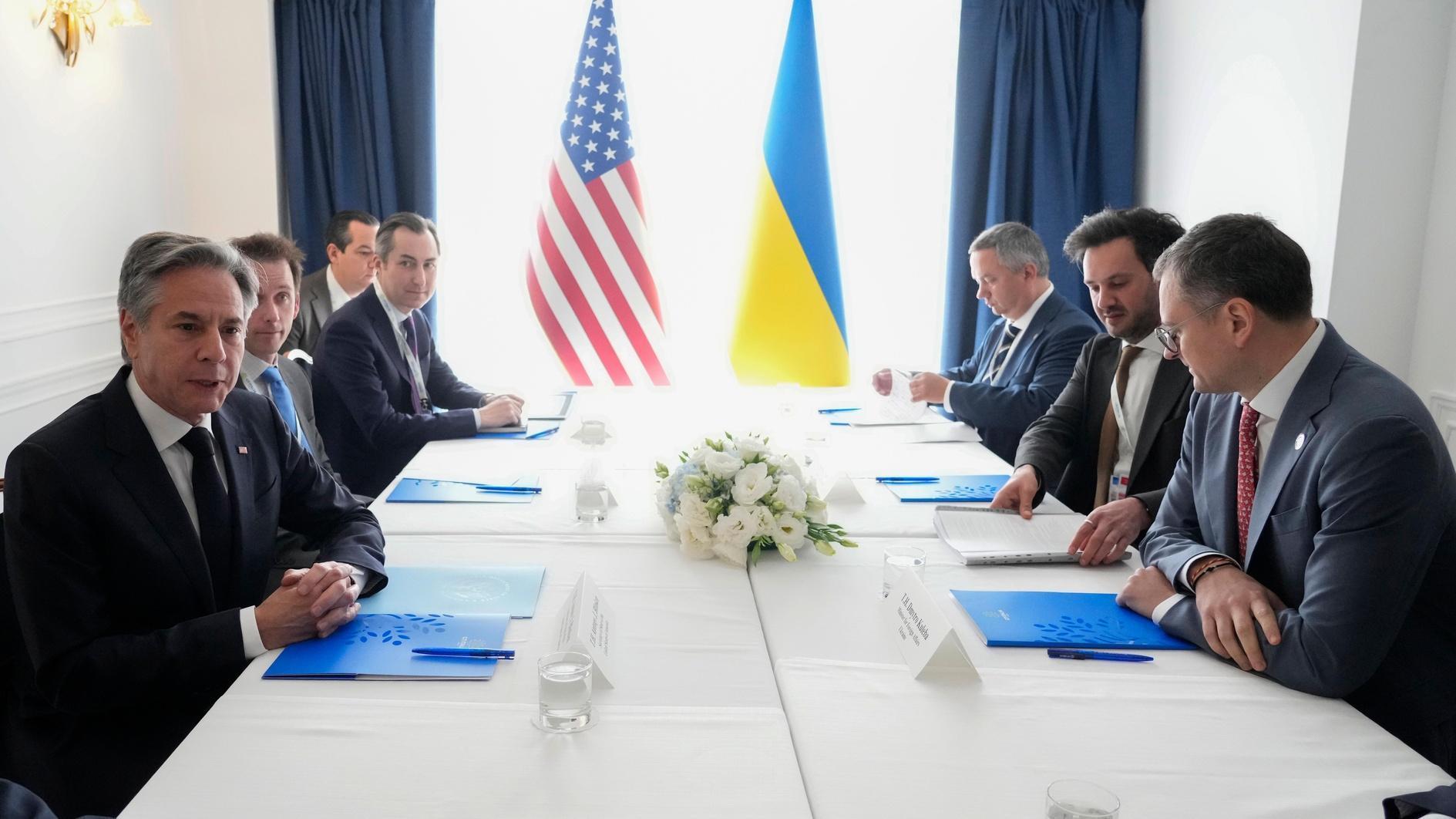Cold case of the murder of journalist Uğur Mumcu says a lot about Turkey today
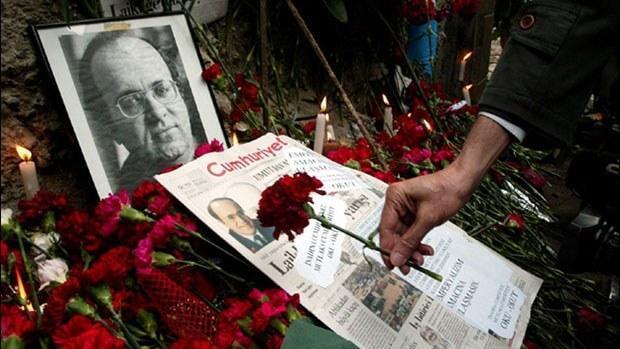 Prominent journalist, researcher and writer Uğur Mumcu was killed in Ankara 22 years ago on Jan. 24, 1993. A bomb was planted under his car, which was parked in front of his house, and exploded when he started the engine.
Prominent journalist, researcher and writer Uğur Mumcu was killed in Ankara 22 years ago on Jan. 24, 1993. A bomb was planted under his car, which was parked in front of his house, and exploded when he started the engine.Mumcu had been receiving death threats because of the many files he had been investigating - from the assassination attempt on the late Pope John Paul II by a right-wing Turkish triggerman, to the relations of drugs and arms smuggling with the Kurdish issue, from the rise of the Kurdistan Workers’ Party (PKK) to the rumored Iranian-Saudi links in political killings of the time.
Despite all of the promises given by successive Turkish governments, Mumcu’s case has still not been entirely solved.
When considered in retrospect, it can be observed that the murder did not only aim at a journalist, and freedom of the press. I was part of a bigger picture - 1993 was a very bad year for Turkey.
Here is the list of events in 1993:
- Jan. 24: Mumcu was assassinated.

- Feb. 5: Adnan Kahveci, one of former President Turgut Özal’s most trusted aides and former finance minister, died in a suspicious traffic accident near Ankara.
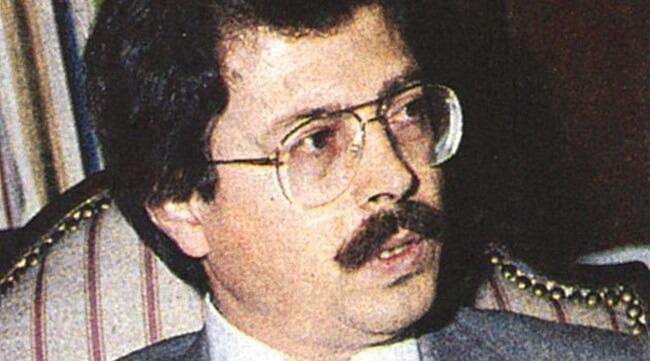
- Feb. 17: General Eşref Bitlis, the commander of the Gendarmerie Forces, died in a helicopter accident near Ankara. He was working on a feasible Kurdish solution plan with Özal. His family still claims that the crash was not an accident.
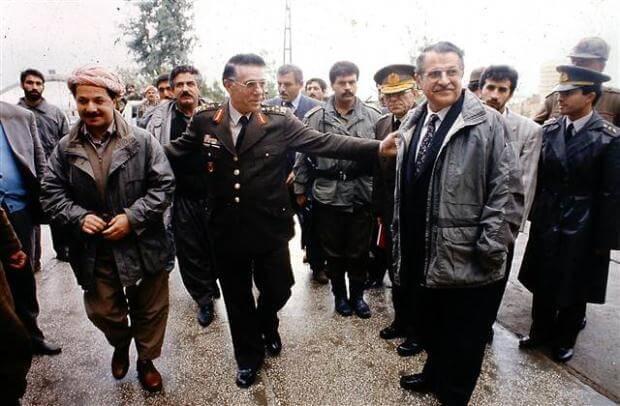
Eşref Bitlis (C) with Massoud Barzani (L) and Jalal Talabani (R).
- Mar. 17: PKK leader Abdullah Öcalan announced a unilateral cease-fire with the mediation of Iraqi Kurdish leader (later an Iraqi president) Jalal Talabani, with backstage instructions by Özal, following the heavy bloodshed in 1992.

Turkey's 8th President Turgut Özal and his wife Semra Özal
- Apr. 17: Özal died. His family still claims that his death could have been manipulated as a heart attack. The case is not entirely closed.
- May 16: Prime Minister Süleyman Demirel, who was elected as the new president, welcomed the extension of the PKK cease-fire and hoped that it would continue for a political solution.
- May 24: Thirty-three unarmed soldiers in a civilian bus were executed by PKK militants between the eastern cities of Bingöl and Elazığ, marking the end of the cease-fire and the continuation of fierce clashes.

Azeri President Elchibey with his Turkish counterpart Özal and Özal's successor, Demirel.
- June 25: Tansu Çiller was elected as the new prime minister, as well as the first female prime minister in Turkey.
- July 2: Thirty-three people died in a hotel fire, set by angry Sunni Islamist demonstrators in the eastern town of Sivas. Those murdered were in Sivas for an Alevi cultural festival.
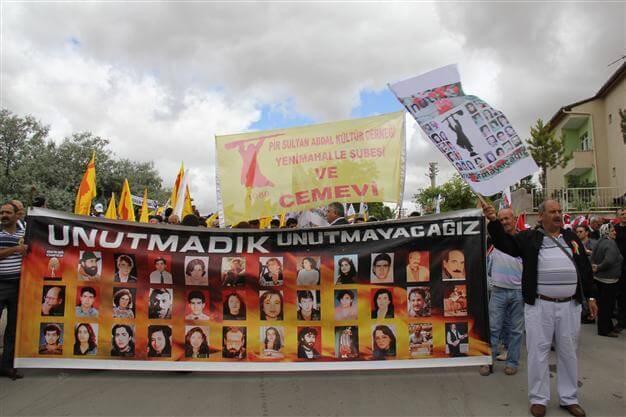
Some 35 people perished in the arson attack on the Madımak Hotel. What became known as the Sivas massacre is acknowledged as one of the worse cases of civil violence in Turkey’s recent history. AA photo
- In August and September, there were a number of uprisings in predominantly Kurdish-populated southeastern towns such as Şırnak, İdil and Lice. Many people, including PKK militants, soldiers, and civilians, were killed in these uprisings.
- Oct. 22: Brigadier General Bahtiyar Aydın was killed in an assassination in Lice. His family still claims that it was not the PKK, but forces within the government who did not want peace with the Kurds, that killed him.
- Nov. 4: Cem Ersever, a notorious Special Forces major and intelligence officer, was found dead near Ankara.
- Nov. 4: Prime Minister Çiller announced in Istanbul that the government was in possession of a list of Kurdish businessmen helping the PKK, vowing that this list would not remain unanswered.
Later, throughout 1994 a number of Kurdish businessmen were killed, allegedly by militants of the Kurdish Hizbullah.
Among them was Savaş Buldan, the husband of Pervin Buldan, who is now a member of parliament for the Peoples’ Democratic Party (HDP) and one of the active members mediating between Öcalan, now imprisoned, and the current Justice and Development Party (AK Parti) government, as a part of an initiative by President Tayyip Erdoğan.
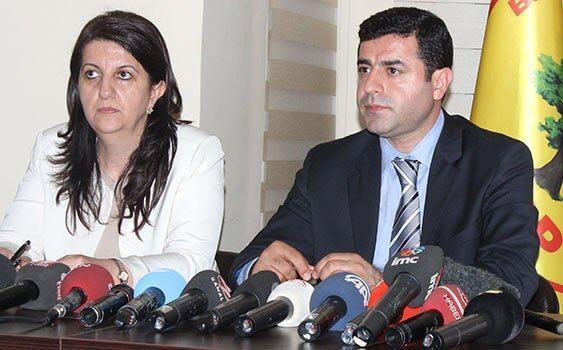
The Peoples’ Democratic Party (HDP) deputy parliamentary head Pervin Buldan and HDP co-chair Selahattin Demirtaş




